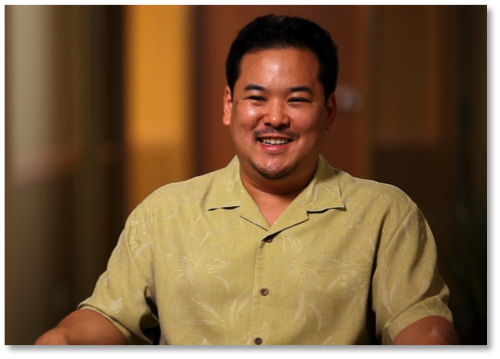
The Ornish Reversal Program: The First Intensive Cardiac Rehabilitation Program to be Covered By Medicare
Dr. Dean Ornish and his colleagues are creating a new paradigm of health care rather than only sick care—one that addresses the lifestyle choices that are the underlying causes of coronary heart disease, type 2 diabetes, and other chronic illnesses.
We have a chance over a nine week period to spend a really intensive amount of time—72 hours—with each patient
The Ornish Reversal Program is the first program to be covered by Medicare under the new category of Intensive Cardiac Rehabilitation. It remains the only program scientifically proven in randomized controlled trials to reverse the progression of even severe coronary heart disease by lifestyle changes, without drugs or surgery.
In addition, many of the major insurance companies are also covering the Ornish Reversal Program. These include Anthem (Blue Cross/Blue Shield in 14 states, including New York and California), Aetna, HMSA, and others.
“When we spend a few minutes with a patient in an exam room and tell them they need to eat healthier, sometimes they get it, but usually they don’t,” says Dr. Andrew Fiedler, a cardiologist at Beacon Health System, which is one of the first to offer the Ornish Program. “The difference with having the Ornish Reversal Program is we have a chance over a nine week period to spend a really intensive amount of time—72 hours—with each patient to be sure they get exactly what they need to become healthier.”
Forty Years of Research
For almost four decades, Dr. Ornish and his colleagues at the non-profit Preventive Medicine Research Institute and the University of California, San Francisco have conducted clinical research proving the many benefits of his program of comprehensive lifestyle changes. These include:
- a whole foods, plant-based diet (naturally low in fat and refined carbohydrates);
- stress management techniques (including yoga and meditation);
- moderate exercise (such as walking); and
- social support and community (love and intimacy).
In short—eat well, move more, stress less, and love more.
They used the latest high-tech state-of-the-art scientific technology to prove the power of simple lifestyle changes: eat well, stress less, move more, love more.
It remains the only program scientifically proven to reverse heart disease in randomized controlled trials published in the leading peer-reviewed journals. Angina (chest pain) was reduced by over 90% and blood flow to the heart improved significantly in just three weeks. After one year, coronary arteries became significantly less clogged, and there was even more improvement after five years.
Also, Dr. Ornish’s program has been proven to reverse type 2 diabetes and may slow, stop, or even reverse the progression of early-stage prostate cancer. Most people who were told that they would need to take drugs for the rest of their lives to lower their cholesterol levels, blood pressure, or blood sugar have been able to reduce or even discontinue these under their doctor’s supervision.
Changing your lifestyle also changes your genes—turning on (upregulating) protective genes that help keep us healthy, and turning off (downregulating) genes that cause oxidative stress, chronic inflammation, and the genes that promote prostate cancer, breast cancer, and colon cancer—over 500 genes in only three months. Our genes are a predisposition, but are genes are not our fate.
In collaboration with Dr. Elizabeth Blackburn, who received the Nobel Prize in Medicine for her pioneering work with telomeres and telomerase, Dr. Ornish and his colleagues found that these lifestyle changes lengthened telomeres, the ends of our chromosomes that regulate longevity—in a real sense, beginning to reverse aging at a cellular level.
Changing Reimbursement to Change the Way Doctors Practice Medicine
Beginning in 1993, via the non-profit Preventive Medicine Research Institute, Dr. Ornish and his colleagues began training over 50 hospitals and clinics throughout the country. They motivated patients to make and sustain bigger changes in lifestyle, achieve better clinical outcomes and document larger cost savings than had ever been shown.
Unfortunately, because of a lack of reimbursement at the time, several of the sites closed. “I learned that it’s not enough to have great science and great outcomes; reimbursement also plays an important role.”
Dr. Ornish soon saw that it wasn’t enough to have good science. He realized that the healthcare system also needed to change reimbursement. “We doctors do what we get paid to do and we get trained to do what we get paid to do,” he writes. “Therefore, I realized that if we could change reimbursement, then we would improve both medical practice and medical education.”
Major Breakthrough for Medicine
So, in 1993 Dr. Ornish began a 16-year journey to achieve Medicare coverage. After intensive internal and external review, including a Medicare Demonstration Project and two Medicare Coverage Advisory Commission hearings, the Centers for Medicare and Medicaid Services agreed to provide Medicare coverage for “Dr. Dean Ornish’s Program for Reversing Heart Disease” under a new benefit category, ‘Intensive Cardiac Rehabilitation.’
This decision was a major breakthrough for medicine, as it was the first time that Medicare covered an integrative medicine program of comprehensive lifestyle changes. “Since reimbursement is a major determinant of medical practice and medical education, Medicare coverage helps to make programs of comprehensive lifestyle changes much more widely available to those who most need them,” writes Dr. Ornish.
These findings are giving millions of people worldwide new hope and new choices. These findings are giving millions of people worldwide new hope and new choices that are not only more caring and compassionate, but are also more cost effective and competent.
Clinical Outcomes
Here are the latest findings from the nearly 4,000 patients who went through Dr. Ornish’s Program for Reversing Heart Disease in a study via Highmark Blue Cross Blue Shield in Pennsylvania, Nebraska, and West Virginia:
- Overall adherence after 1 year was 88%.
- The average patient lost 13.3 pounds in the first 12 weeks and 15.9 pounds after 1 year.
- There were significant reductions in systolic blood pressure, diastolic blood pressure, total cholesterol, triglycerides, and LDL-cholesterol after 12 weeks and also after 1 year.
- Exercise capacity increased from 8.7 to 10.6 METS after 12 weeks (18% increase) and to 10.8 METS after one year (24% increase).
- Significant reductions in depression and hostility (the emotions most strongly linked with heart disease) after 12 weeks that were still significant after 1 year.
- Hemoglobin A1C in diabetics decreased from 7.4% at baseline to 6.5% after 12 weeks and 6.8% after one year (complications of diabetes such as blindness, kidney failure, heart disease, and amputations can be prevented when hemoglobin A1C is less than 7.0%).
- 95% of patients reported improvement in severity of angina (chest pain) after 1 year.
These studies show how powerful comprehensive lifestyle changes can be, how dynamic these mechanisms are, and how quickly benefits may occur.
With Medicare reimbursement and a growing network of certified providers, Dr. Ornish’s program is providing greater access to intensive cardiac rehabilitation to those who need it.
Learn more about Dr. Ornish’s Intensive Cardiac Rehabilitation program.








